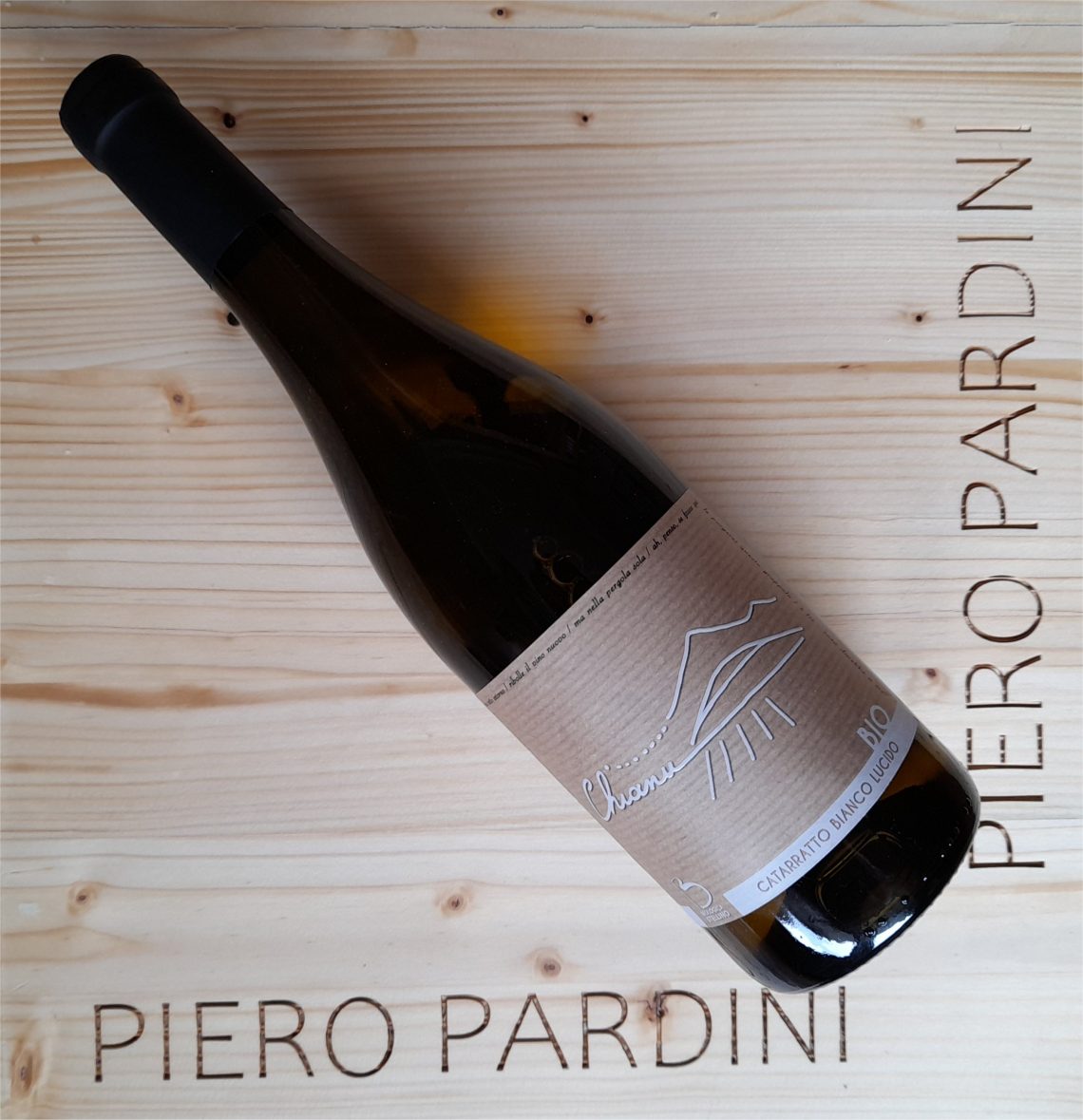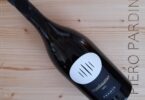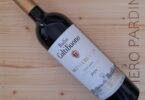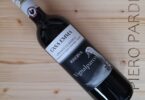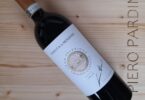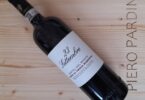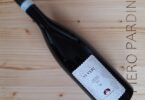Credits: © Piero Pardini – The Wolf Post
Biologica Stellino is a Sicilian winery that has its roots in the early centuries of the twentieth century, with the purchase of the great-grandfather of the current owner of a property in the Fratacchia district in the countryside of Monreale. This territory is particularly devoted to the cultivation of vines, olives for oil and cereals, crops today are all grown on the farm.
Tommaso, a young owner of the company, with studies in agriculture, dedicates his experience and professionalism to organic and sustainable cultivation, as his father taught him.
Biologica Stellino began with the cultivation of the Catarratto variety, typical in the countryside of Monreale, Alcamo and in the neighboring municipalities. Over time, both white and black native Sicilian varieties have been introduced (Inzolia and Nero D’Avola). The varieties extend over two corporate bodies that have different soil and climatic characteristics, giving the grapes different characteristics.
Tommaso argues that for him and the company group: “Wine is the last act” … it is also the combination of careful work, the taste of the earth, the sweat of sacrifices and the passion that has been transmitted to us by our father and who still advises and helps us how to do things right “.
In the company, nothing is left to chance and the choice of only native varieties has simplified organic cultivation, which has become, over time, a philosophy of life, without neglecting quality.
Since 2016, some of the grapes have transformed. First only glossy Catarratto and Nero D’Avola and, from 2017, also Inzolia. Thus three labels are born: Chianu, Crita and TrediDue, all wines obtained from organic grapes and vinified in purity.
Common Catarratto, differs from Lucido by the presence of bloom on the berries, and by the conical or cylindrical shape with a more or less compact bunch.
Catarratto Lucido, with no bloom on the berries, smaller than the common, with a compact cluster, elongated in shape with lateral wings.
The differences between the two main biotypes, whose wines can be very different from each other, consist in their different consistency and aromatic composition, as well as in the different accumulation of the main acids contained in the pulp. Both biotypes have been grown on the farm for several generations. The polish is grown in the historic family business, on fertile and deep soils, which tend to be clayey, and is used for the production of Chianu.
Among the oldest varieties grown in Sicily, Inzolia which, on the farm, is grown on hilly, sandy and dry soils, south facing where the sirocco winds affect productivity but, given its resistance to hot climates, it adapts well to such conditions, giving healthy and good quality grapes.
Nero D’Avola is the Sicilian indigenous grape par excellence, cultivated since the times of the Greeks, today it is widespread throughout the territory that is able to express the cultivation terroir in a different way, giving rise to wines with different characteristics. Generous vine with large clusters and medium-large berries, dark blue and pruinose, it gives a ruby-colored wine, intense and fruity, with soft tannins and good acidity.
Ownership: Stellino family
Oenological management: Tommaso Stellino
Agronomic management: Tommaso Stellino and Salvatore Zichichi
Viticulture: organic
Vineyard hectares: 16
Bottles produced: 9,000
Direct sales: yes
Visits to the company: yes
EVOO production: yes
Foundation year: 2003
Wine: Chianu
Varietal composition: 100% glossy and extra-glossy Cataratto.
Denomination: Catarratto DOC Sicilia.
Grown in the district: Fratacchia, in the countryside of Monreale.
Exposure: North
Altitude: 150 a.s.l.
Soils: basically flat, deep and rich, with mixed clayey granulometry.
Planting year: 2009
Training system: Simple Guyot espalier.
Density: 3,800 plants per hectare.
Cultivation method: organic.
Harvest: manual, second ten days of September.
Yield: 90 quintals per hectare.
Vinification and aging: in conditioned steel silos and bottles.
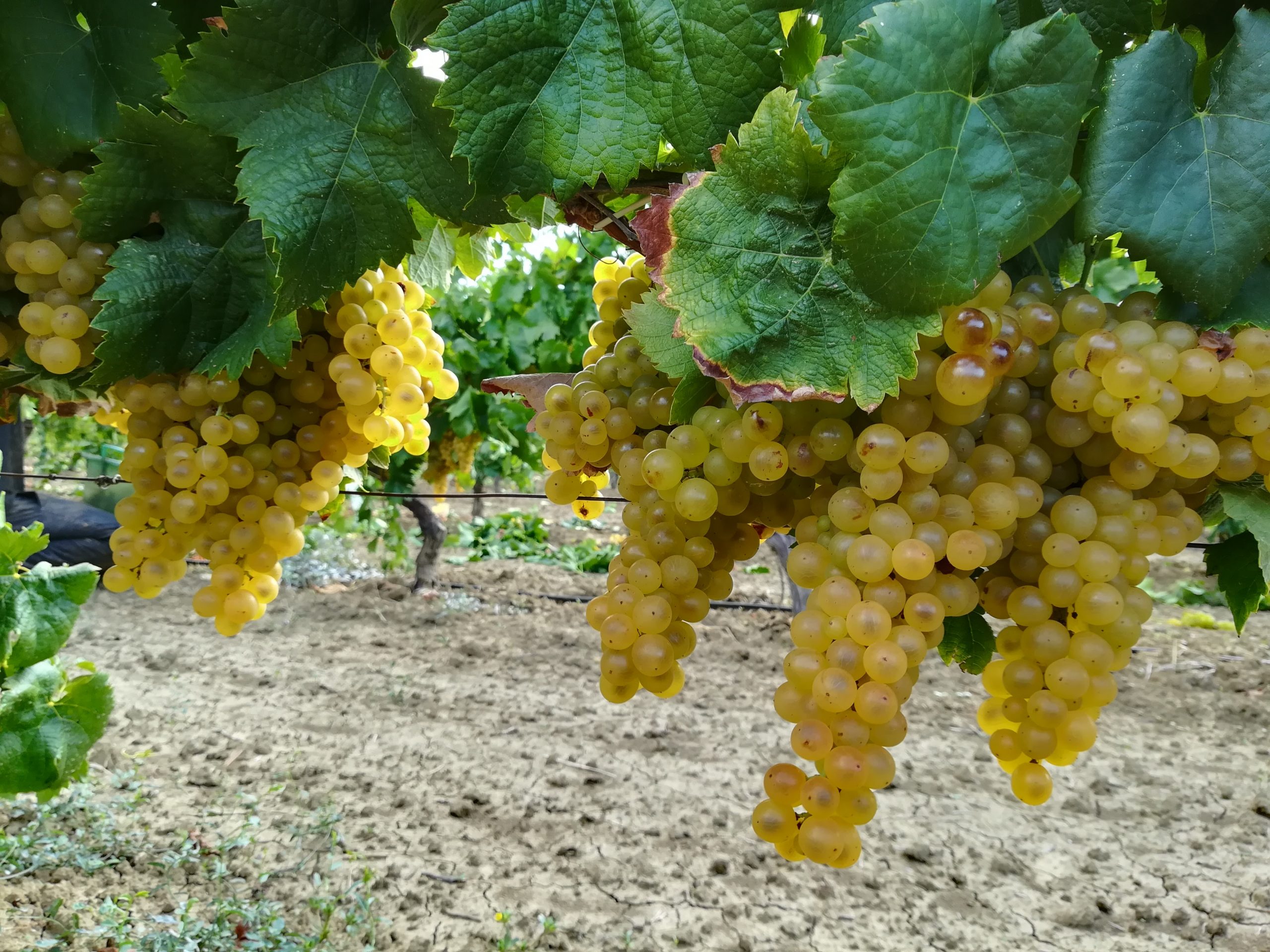
© Biologica Stellino
Visual exam
Clarity: Crystal-clear
Color: straw yellow
Consistency: consistent
Observations: lively, with greenish reflections.
Olfactory examination
Intensity: intense
Complexity: moderately complex
Quality: fine
Description: floral, fruity and mineral
Remarks: intense fresh floral notes reminiscent of white flowers: including white rose and broom; followed by notes of yellow-fleshed fruits such as peach and apricot. Brackish and silica mineral closure. Balsamic nuance of Mediterranean scrub.
Taste – olfactory examination
Sugars: dry
Alcohols: warm
Polyalcohols: moderately smooth
Acids: fresh
Tannins: – – –
Minerality: mineral
Structure: full-bodied
Balance: moderately balanced
Intensity: intense
Length: moderately length
Quality: good
Remarks:
Final remarks
State of Evolution: mature
Harmony: moderately harmonious
Remarks: the sample has a varied bouquet of perfumes. In the mouth there is correspondence with what was discovered in the olfactory analysis. Pleasant to the sip, not excessively persistent, but its freshness invites you to repeat the tasting.
Rating:
![]()
Biologica Stellino
via Arancio, 108
91011 – Alcamo (Trapani)
Phone +39 328 9143664
E-mail: info@biologicastallino.it
Website: www.biologicastallino.it


